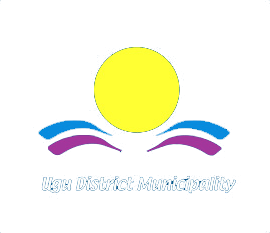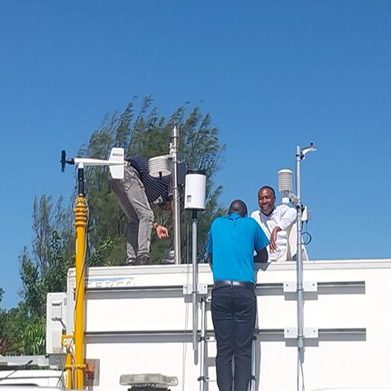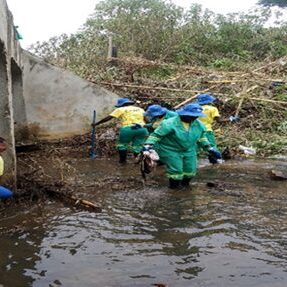The Department of Economic Development and Environmental Services contains three business units:
- Economic Planning and Development;
- Environmental Health Services
- Environmental Management
Economic Planning and Development consolidates a district perspective in economic planning and co-ordinates/enables/implements district-wide catalytic projects and interventions.
Environmental Health Services is responsible for the following functions, of which there are permits and certificates required:
Water Quality Management, Food Safety & Control, Waste Management, Health Surveillance of Premises, Surveillance and Prevention of communicable Disease, Vector Control, Environmental Pollution Control & Disposal of the Dead. The required application forms and Regulations can be accessed by clicking on Environmental Health Services below.
Environmental Management is responsible for a district perspective on environmental management matters: planning and coordinating/enabling/implementing district wide projects and interventions, awareness and education and air quality control. In addition, the unit provides an advisory service to the Department of Water and Sanitation in the Ugu District Municipality.
Economic Development and Evironmental Services Members

Ms Deidre Rankin
General Manager
- Economic Development and
Environmental Services
039 688 5807
Deidre.Rankin@ugu.gov.za

Mr France Zama
Senior Manager
- Economic Development and
Environmental Services
039 688 5713
France.Zama@ugu.gov.za

Mr Sihle Mbatha
Manager: Economic Development
039 688 5896
Sihle.Mbatha@ugu.gov.za

Ms Vasie Manawer
Manager: Environmental Health
039 688 5798
Vasie.Manawer@ugu.gov.za

Mr Bright Khumalo
Manager: Environmental
Management Services
039 688 3529
Bright.Khumalo@ugu.gov.za
Environmental Health Services
Manager: Ms Vasie Manawer
Email: Vasie.Manawer@ugu.gov.za
Tel: 039 688 5798
Environmental Health is a branch of public health that focuses on the relationships between people and their environment. It involves understanding the impact of environmental factors on human health and implementing measures to control and prevent health hazards.
Municipal Health Services renders an environmental health service to all communities in Ugu. The Environmental Health Services team comprises of highly qualified and skilled environmental health practitioners (EHPs). These professionals are dedicated to protecting public health by managing and mitigating environmental risks. They provide and facilitate comprehensive, proactive, and needs-based services to ensure a safe, healthy, and clean environment, thereby preventing and eliminating disease.
The Department plays a role as a regulator and service provider in maintaining environmental health standards in the district as well as running programmes to create awareness around these risks. The Ugu Public Health By-laws, adopted by the Council on 25 May 2017, empower the municipality to address a wide array of environmental factors, ensuring that living environments are safe, healthy, and conducive to well-being. The work of the Environmental Health Practitioners within the municipality is crucial in maintaining public health through effective regulation and management.
Services offered by Environmental Health services are defined in the National Health Act (Act 61 of 2003) includes amongst others:
- Food control and compliance including issuing of certificates of acceptability (COA) in terms of Regulations Governing General Hygiene Requirements For Food Premises, The Transport Of Food And Related Matters: Regulations No. R638 Of 22 June 2018 Promulgated Under The Foodstuffs, Cosmetics & Disinfectants Act (Act 54 Of 1972)
- Caterers and events permit for food handlers.
- Certificates of competence (COC) for funeral undertakers in terms of Regulation Relating to the Management of Human remains (R363)
- Water quality monitoring.
- Ritual slaughter.
- Assessment of building plans for compliance with health-related requirements.
- Health Education: Promoting hygiene and health practices to prevent diseases caused by environmental factors.
- Waste management.
- Health surveillance of premises (including environmental health inspections).
- Surveillance and prevention of communicable diseases (excluding immunisation).
- Vector (pest) control.
- Environmental pollution control
- Disposal of human remains.
- Exhumation of the dead.
Application Forms
Casual Events Permit Application Form
Certificate of Acceptability Application
Certificate of Competence Application Form
Ritual Slaughter Application form
Regulations
Regulation R363 Relating to the Management of Human remains
Regulation R638 - Regulations governing general hygiene requirements for food premises
Environmental Management
Manager: Mr Bright Khumalo
Email: Bright.Khumalo@ugu.gov.za
Tel: 039 688 3529
Legislative mandate
Section 24 of the Republic of South Africa states that Everyone has the right to an environment that is not harmful to their health or wellbeing; and to have the environment protected, for the benefit of present and future generations, through reasonable legislative and other measures that prevent pollution and ecological degradation, promote conservation and secure ecologically sustainable development and use of natural resources while promoting justifiable economic and social development.
This provision of the Constitution is supported, emphasised and implemented through several environmental management legislative prescripts, e.g National Environmental Management Act, Coastal Management Act, Air Quality Act etc.
Implementation mechanism
In implementing the above legislative provisions, Environmental management unit essentially advocates for the use of natural resources to serve the social, economic, and other needs of the present and future generations. It promotes an improved relationship between human beings and environment through observation and control of anthropogenic activities, conservation, environmental protection, enforcement of regulations and regeneration of nature.
As a water and sanitation service provider and authority, Ugu District municipality relies on water resources, and such must be protected and treasured to ensure sustainable water and sanitation service delivery.
To ensure sustainable and effective service delivery Ugu Environmental Management has developed various environmental management instruments, as per legislative requirements of the National Environmental Management Act (NEMA) and other legislations. These tools are:
- Ugu District Municipality: Environmental Management Framework
- Environmental Managment Programme for Water and Sanitation Activities
- Ugu District Municipality Coastal Managment Programme
- Ugu District Municipality: Integrated Waste Managment Plan
- Ugu District Municipality: Climate Change Response Strategy
- Ugu District Municipality: Air Quality Management Plan
- Ugu District Municipality Air Quality Management By-Law
- Ugu District Municipality: Integrated Waste Management Plan
The Climate Change Adaptation Plan and its accompanying Risk Profile report have been specifically drafted for the Ugu District Municipality, with the aim of strengthening its strategic response to climate change. These documents derive their insights from the GreenBook (www.greenbook.co.za), a freely accessible online planning support system.
Environmental functions
In an effort to comprehensively achieve the objectives of the above regulatory requirements and sector plans Ugu Environmental Management unit performs the functions that are summarised in the table below:
POLLUTION CONTROL
- ambient air quality monitoring to monitor ambient meteorological conditions, PM10 and PM2.5 emissions
- •inspections for the purposes of ascertaining compliance with- conditions of an authorization issued in terms of such legislation
- collaboration with Water Services to ensure that their work is compliant, and their environmental awareness is being enhanced.
- manage environmental pollution in the district through the application of the developed Standard Operating Procedures
BIO-DIVERSITY
- control of plant invasion that alter ecosystems, as well as important natural processes such as fire frequency, nutrient cycling, erosion, hydrologic cycles and sediment deposition, which, and in turn, result in significant negative environmental, and therefore socio-economic impacts
ALIEN INVASIVE CONTROL PLAN
- prepared an invasive species monitoring, control and eradication plan for land under Ugu DM control which presents clear priorities and sets out guidelines to be followed, to achieve successful IAS control at the Ugu properties.
ENVIRONMENTAL EDUCATION AND AWARENESS
- undertake several environmental education initiatives in schools, communities and within the municipality under the banner of the Environmental Education and Awareness forum and through the municipality with particular attention to waste management, biodiversity management, climate change, air quality and many more.
CLIMATE CHANGE
- adopted its Climate Change Vulnerability Assessment and Response Strategy
- Climate Change Adaptation Plan and its accompanying Risk Profile report have been specifically drafted
COASTAL PROTECTION
- multi-stakeholder approach to the general coastal management is the most effective mechanism, especially regarding resource efficiency.
Conclusion
Our commitment is to uplift and improve the quality of life of Ugu’s residents, especially the poor, vulnerable and marginalised through facilitating sustainable economic growth within the region through investment in the development and maintenance of infrastructure and to ensure that Ugu District Municipality continues to be the envy of South Africa in terms of Environmental conditions.
Manager: Mr Sihle Mbatha
Email: Sihle.Mbatha@ugu.gov.za
Tel: 039 688 5896
BUSINESS UNIT: ECONOMIC PLANNING AND DEVELOPMENT
DEFINITION
“LED is an adaptive and responsive process by which public, business and non-governmental sector partners work collectively to create better conditions for innovation-driven inclusive economic development that is characterized by skills development and knowledge transfer; employment generation; capacity building ; investment attraction and retention; image enhancement and revenue generation in a defined area (the district) in order to improve its economic futures and the quality of life for all.” National LED Framework 2018-2028)
VISION
“LED will seek to create competitive, sustainable, diverse, innovative-driven inclusive local economies that are vibrant places in which to live, invest, and work, which maximise local opportunities, address local needs, and which contribute to South Africa’s National Development objectives including sustainable ways of utilizing local resources and expand learning capabilities.” (National LED Framework 2018-2028)
PRESCRIPTIVE, POLICY AND PLAN CONTEXT
The business unit of Economic Planning and Development exists and performs its functions within a prescriptive, policy and hierarchy of plan framework.
Prescriptive Framework:
- Constitution of the Republic of South Africa (1996) Section 152, Section 153 and Section 156. The objectives of local government include social and economic development, and the developmental duties of local government includes promoting social and economic development.
- Local Government Systems Act (Act 32 of 1996) Various Sections.
- Local Government Municipal Finance Management Act (Act 56 of 2003) Various Sections
Plans Framework:
There are numerous plans, however the key plans are:
| HIERACHY OF POLICIES AND PLANS | |
| INTERNATIONAL | Sustainable Development Goals – Envision 2030 |
| CONTINENTAL | Africa Union Agenda 2063 – 7 Aspirations |
| NATIONAL | National Development Plan – Vision 2030 |
| National Infrastructure Plan – Vision 2050 | |
| Medium Term Expenditure Framework – Vision 2025 | |
| PROVINCIAL | Eastern Seaboard Masterplan |
| Eastern Seaboard Regional Spatial Development | |
| Provincial Growth Development Strategy – Vision 2035 | |
| LOCAL | District Development Model – Vision 2040 (One District/One Plan) |
| Ugu District Economic Development Framework 2022 – 2032 : Strategy and Plan | |
| District SDF – Vision 2040 | |
| District IDP | |
BUSINESS UNIT ROLE IN ECONOMIC DEVELOPMENT
The district economic development function is performed within a context of defined roles and responsibilities between the provincial department, district, local municipal LED and the Special Purpose Vehicle of Economic Development (South Coast Tourism and Investment Enterprise). Essentially the district:
- Enables, Facilitates and Coordinates District-Wide Programme Planning and Implementation.
- Leverages strategic assets of Council to stimulate social and economic development. The Ugu Sports and Leisure is one such asset. (Please add link to cross reference to USLC)
- Supports the District Special Purpose Vehicle for Economic Development: which is responsible for investment promotion, attraction, and facilitation across all sectors of the economy. (https://www.sctie.co.za/).
UGU DISTRICT ECONOMIC FRAMEWORK 2022-2032: Strategy and Plan

The strategic goals and objectives of the unit, which are further disaggregated into programmes and projects are indicated below:
| STRATEGIC GOAL | STRATEGIC OBJECTIVE |
| Municipal Strategic LED Facilities/Assets | To leverage the assets to stimulate economic activity. (Leverage land within Portfolio to support entrepreneurs, small businesses) |
| Economic Governance & Infrastructure | To improve LED Planning, Mgt and Admin Capacity. |
|
Developing an Inclusive Economy |
To rethink and develop the Informal Economy |
| To promote and support an inclusive and integrated rural economy | |
| To promote and support capitalizing on opportunities in green economy | |
| To promote and support oceans economy development | |
| To promote and support township economy development | |
| To promote and support small town economic development | |
| Building a Diverse and Innovation Driven Economy | To promote local sectoral development (primary, secondary and tertiary) |
| Enterprise Development and Support | To promote and support enterprise development |
| Strengthening Local Innovation System | To strengthen local innovation systems |
| Developing Learning and Skillful Economies | To improve economic leadership and management skills |
STRUCTURE:
The unit has a manager, administrative assistant support and three Economic Development Practitioners:
- one responsible for sectoral support coordination and facilitation,
- one for economic government and infrastructure support and coordination and
- one for catalytic projects planning and implementation support and coordination.
In addition, the Ugu Sports and Leisure Centre has its own staffing with a coordinator, administrative support, groundsman and general worker.






